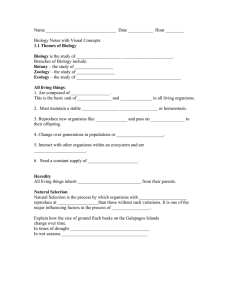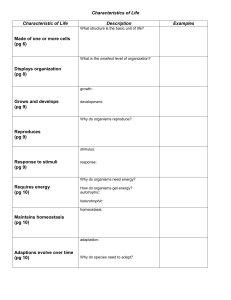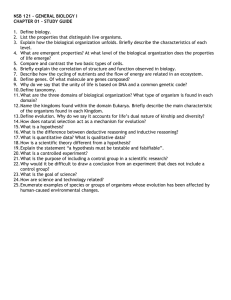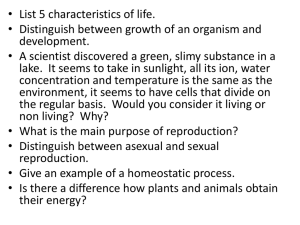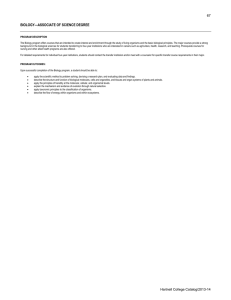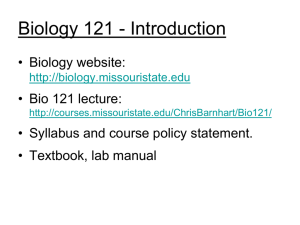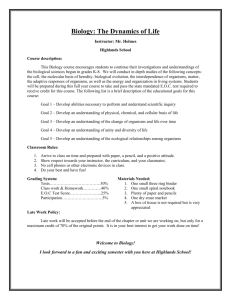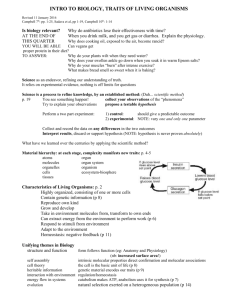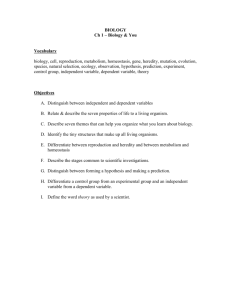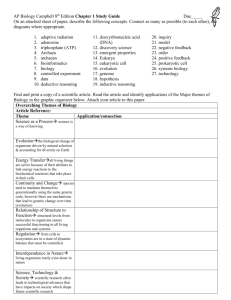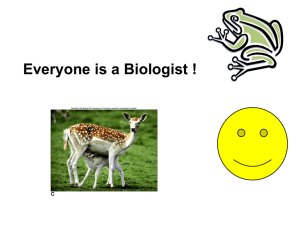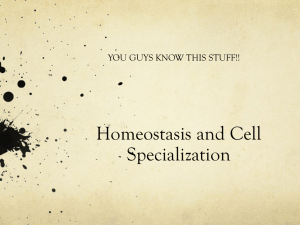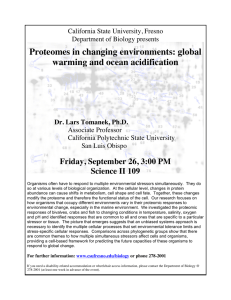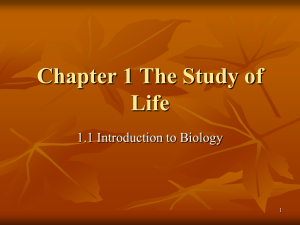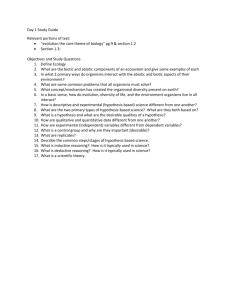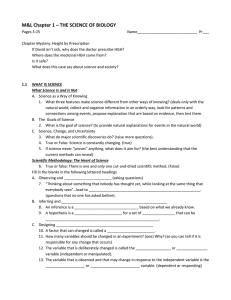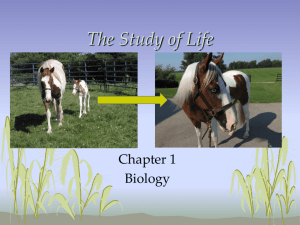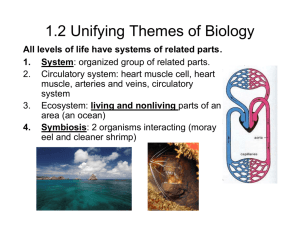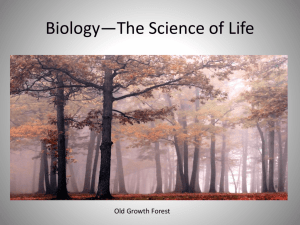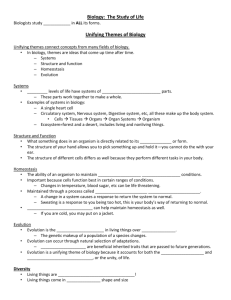Introduction to Biology (Honors) Study Guide 1. Scientists use
advertisement
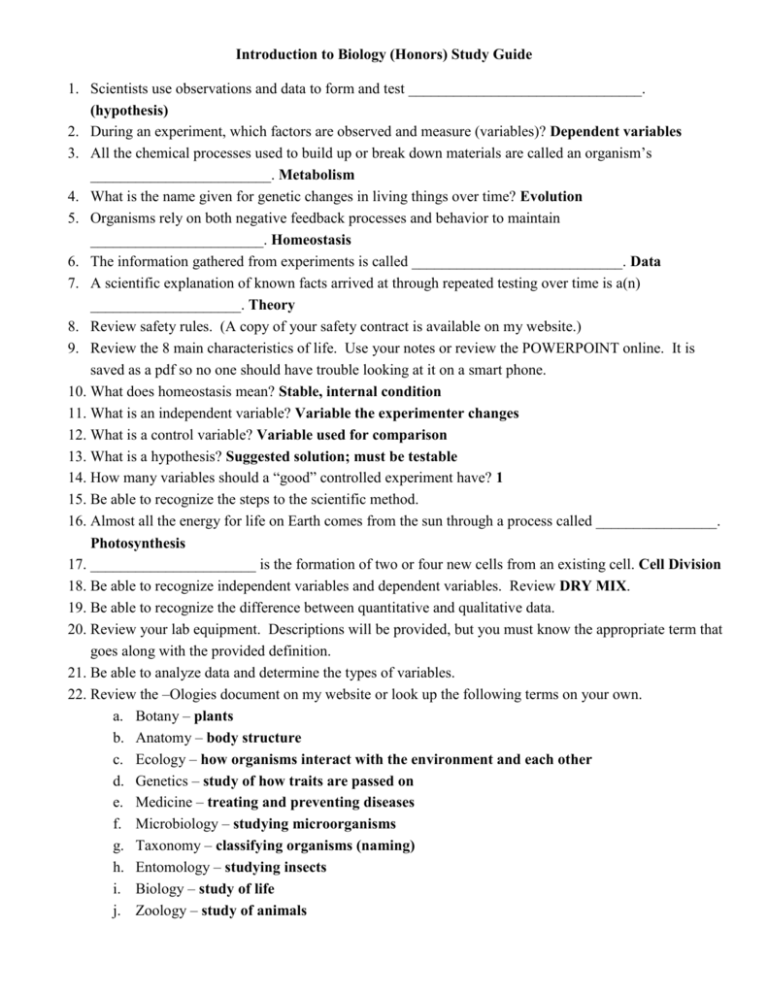
Introduction to Biology (Honors) Study Guide 1. Scientists use observations and data to form and test _______________________________. (hypothesis) 2. During an experiment, which factors are observed and measure (variables)? Dependent variables 3. All the chemical processes used to build up or break down materials are called an organism’s ________________________. Metabolism 4. What is the name given for genetic changes in living things over time? Evolution 5. Organisms rely on both negative feedback processes and behavior to maintain _______________________. Homeostasis 6. The information gathered from experiments is called ____________________________. Data 7. A scientific explanation of known facts arrived at through repeated testing over time is a(n) ____________________. Theory 8. Review safety rules. (A copy of your safety contract is available on my website.) 9. Review the 8 main characteristics of life. Use your notes or review the POWERPOINT online. It is saved as a pdf so no one should have trouble looking at it on a smart phone. 10. What does homeostasis mean? Stable, internal condition 11. What is an independent variable? Variable the experimenter changes 12. What is a control variable? Variable used for comparison 13. What is a hypothesis? Suggested solution; must be testable 14. How many variables should a “good” controlled experiment have? 1 15. Be able to recognize the steps to the scientific method. 16. Almost all the energy for life on Earth comes from the sun through a process called ________________. Photosynthesis 17. ______________________ is the formation of two or four new cells from an existing cell. Cell Division 18. Be able to recognize independent variables and dependent variables. Review DRY MIX. 19. Be able to recognize the difference between quantitative and qualitative data. 20. Review your lab equipment. Descriptions will be provided, but you must know the appropriate term that goes along with the provided definition. 21. Be able to analyze data and determine the types of variables. 22. Review the –Ologies document on my website or look up the following terms on your own. a. Botany – plants b. Anatomy – body structure c. Ecology – how organisms interact with the environment and each other d. Genetics – study of how traits are passed on e. Medicine – treating and preventing diseases f. Microbiology – studying microorganisms g. Taxonomy – classifying organisms (naming) h. Entomology – studying insects i. Biology – study of life j. Zoology – study of animals
